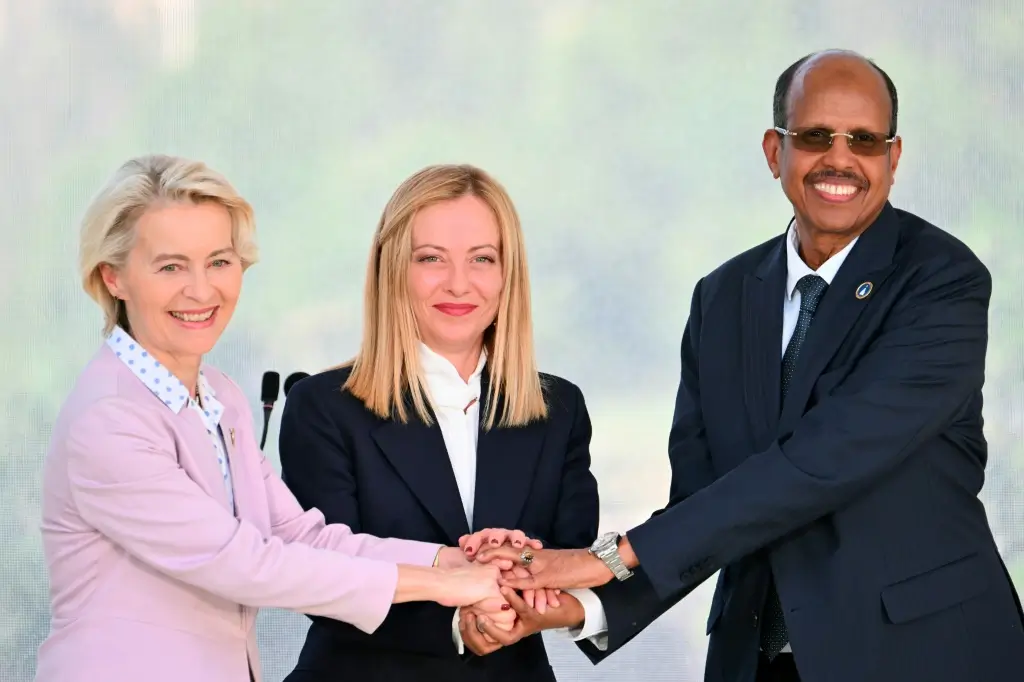
Italian Prime Minister Georgia Meloni hosted European Commission chief Ursula von der Leyen in Rome on Friday for a summit aimed at boosting African economies in a bid to curb illegal migration to the bloc. Meloni, whose far-right Brothers of Italy party has prioritised cutting irregular immigration, has launched a 5.5-billion-euro ($6.3-billion) plan targeting 14 countries including Ethiopia, Ivory Coast and Senegal to support industries from energy to health care.
The aim is to help African countries "combat upstream the causes that drive too many young people to pay criminal organisations to undertake a dangerous crossing" to Europe, she said Friday. Meloni has been pushing to align the plan with the EU's Global Gateway programme, which aims in part to counter China's growing influence on the continent. "We all know that Africa needs its talents, its skills, its entrepreneurs and its labour force", von der Leyen said at a joint press conference.
The EU-Italy commitments announced Friday focus for the most part on the Lobito Corridor, a strategic railway project in Africa, and the Blue-Raman intercontinental communications system, and are worth a total of 1.2 billion euros, according to a statement. African Union (AU) chair Mahmoud Ali Youssouf welcomed the investments, saying the corridor in particular would "boost intra-African trade".
Meloni's plan also aims to strengthen trade relations between Italy and African nations in the energy sector, since the Russian invasion of Ukraine has forced Rome to seek new supplies of oil and gas. African Union chief Moussa Faki Mahamat has warned that the continent "cannot rely solely on promises that are often broken". And experts say that Italy has "promised too much" by implying that these investments could reduce the number of migrants by creating jobs and growth.
"The funding that Italy can provide is not at the right scale," Giovanni Carbone, head of the University of Milan's Africa programme, told AFP. For Simone Ogno from the NGO ReCommon, the plan serves to benefit the interests of "large companies in the Italian fossil fuel industry". Major Italian companies are already involved in the plan, including oil giant Eni, electricity carrier Terna and agro-industrial group Bonifiche Ferraresi.
Irregular border crossings detected into the European Union stood at 239,000 last year, down 38 percent from an almost 10-year peak in 2023, according to European border agency Frontex. Undocumented migration via the Central Mediterranean route between North Africa and Italy saw around 67,000 migrant arrivals last year, Frontex said, down 59 percent from 2023.